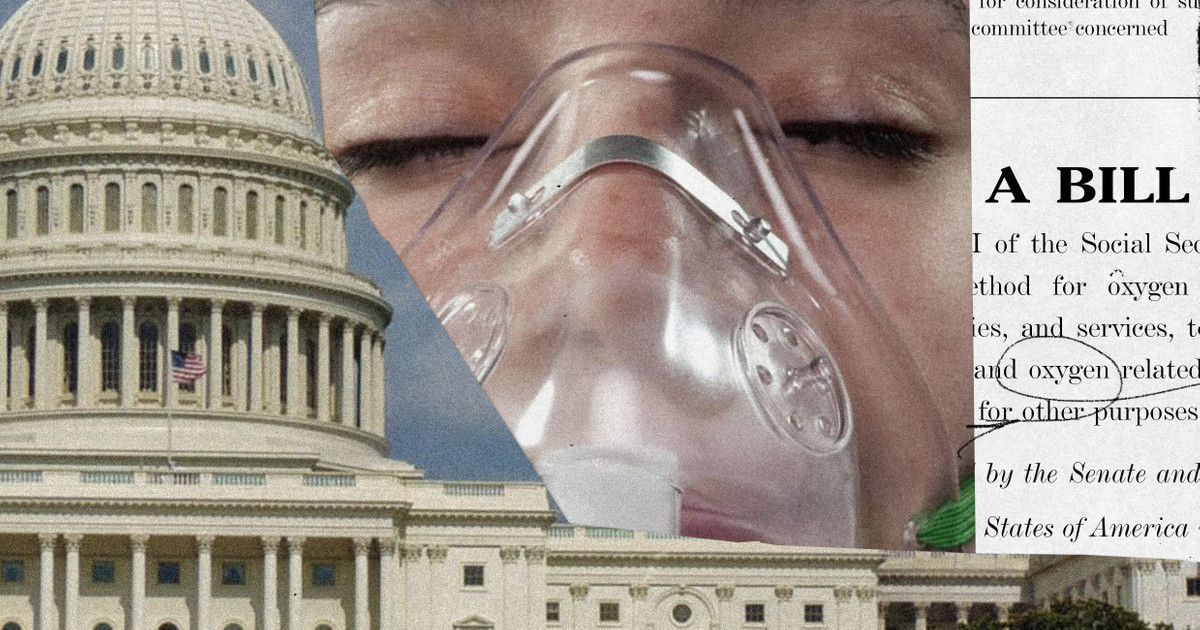Introduction
In a remarkable development within the healthcare landscape, oxygen supply companies and their Medicare patients have formed an unprecedented alliance to lobby Congress for increased funding and support. This unlikely partnership highlights the pressing issues surrounding healthcare funding, patient care, and the sustainability of oxygen supply services in the United States. As both parties recognize the importance of adequate support, their joint efforts raise critical questions about the future of healthcare access for individuals who rely on oxygen therapy.
The Rising Demand for Oxygen Therapy
The growing aging population and rising rates of respiratory diseases, such as Chronic Obstructive Pulmonary Disease (COPD) and pulmonary fibrosis, have significantly increased the demand for oxygen therapy. According to the American Lung Association, COPD affects more than 16 million Americans, and many require supplemental oxygen to manage their condition.
As the demand for oxygen therapy surges, the costs associated with providing these essential services have also escalated. Patients often face high out-of-pocket expenses, particularly those on Medicare, whose coverage can be limited or insufficient. This financial strain has led to growing frustration among patients and has prompted them to seek change.
The Role of Oxygen Supply Companies
Oxygen supply companies play a crucial role in providing necessary equipment and services to patients. These companies are not only responsible for supplying oxygen concentrators and tanks but also for offering critical support services, including equipment maintenance and patient education. However, the reimbursement rates set by Medicare for oxygen services have not kept pace with the rising costs of providing these services.
This financial challenge has prompted oxygen supply companies to advocate for policy changes that would lead to increased funding and fair reimbursement rates. By collaborating with patients, these companies aim to amplify their voices and present a united front to Congress.
The Patient Perspective
For Medicare patients who rely on oxygen therapy, the experience can be daunting. Many face challenges such as:
- High Out-of-Pocket Costs: While Medicare covers some costs, patients often bear substantial out-of-pocket expenses for equipment and maintenance.
- Limited Access to Equipment: Reimbursement limitations can restrict the types of equipment patients can access, affecting their quality of life.
- Educational Gaps: Patients may lack sufficient education about their equipment, leading to improper use and health risks.
These challenges have galvanized patients to join forces with oxygen supply companies, advocating for increased funding and improved access to care.
Lobbying Congress: A Unified Voice
The partnership between oxygen supply companies and Medicare patients has led to coordinated lobbying efforts aimed at Congress. Their campaign focuses on several key objectives:
- Increased Funding: Advocates are seeking increased federal funding for oxygen therapy services to ensure that patients receive the necessary care without exorbitant costs.
- Fair Reimbursement Rates: They are pushing for a reevaluation of Medicare’s reimbursement rates for oxygen services to better reflect the costs incurred by suppliers.
- Policy Reforms: The coalition aims to influence policy changes that would enhance access to advanced oxygen delivery systems and improve patient education initiatives.
This lobbying effort has gained traction, as lawmakers recognize the importance of addressing the needs of vulnerable populations, particularly during a time when healthcare access is under scrutiny.
Broader Implications for Healthcare Policy
The alliance between oxygen supply companies and Medicare patients underscores broader issues within the U.S. healthcare system, particularly regarding funding and access. Key implications include:
- Healthcare Inequality: The struggles faced by Medicare patients in accessing necessary treatments highlight systemic inequalities within the healthcare system, prompting a need for comprehensive reforms.
- Increased Awareness: The coalition’s efforts may raise awareness about the importance of oxygen therapy and the challenges faced by patients, potentially influencing public opinion and policy discussions.
- Future of Patient-Centered Care: This collaboration represents a shift towards more patient-centered advocacy in healthcare, where patient voices are integral to driving policy changes.
Conclusion
The partnership between oxygen supply companies and Medicare patients marks a significant moment in healthcare advocacy. By uniting their efforts, they are bringing attention to the pressing need for adequate funding and support for oxygen therapy services. As they lobby Congress for change, this coalition reflects a growing recognition of the importance of patient advocacy in shaping healthcare policy. The outcome of their efforts could have far-reaching implications, not only for those who rely on oxygen therapy but for the broader healthcare system as it grapples with issues of access, equity, and sustainability. As stakeholders in this complex landscape work together, the hope is for a future where all patients receive the care and support they need to lead healthy, fulfilling lives.
See more WebMD Network



